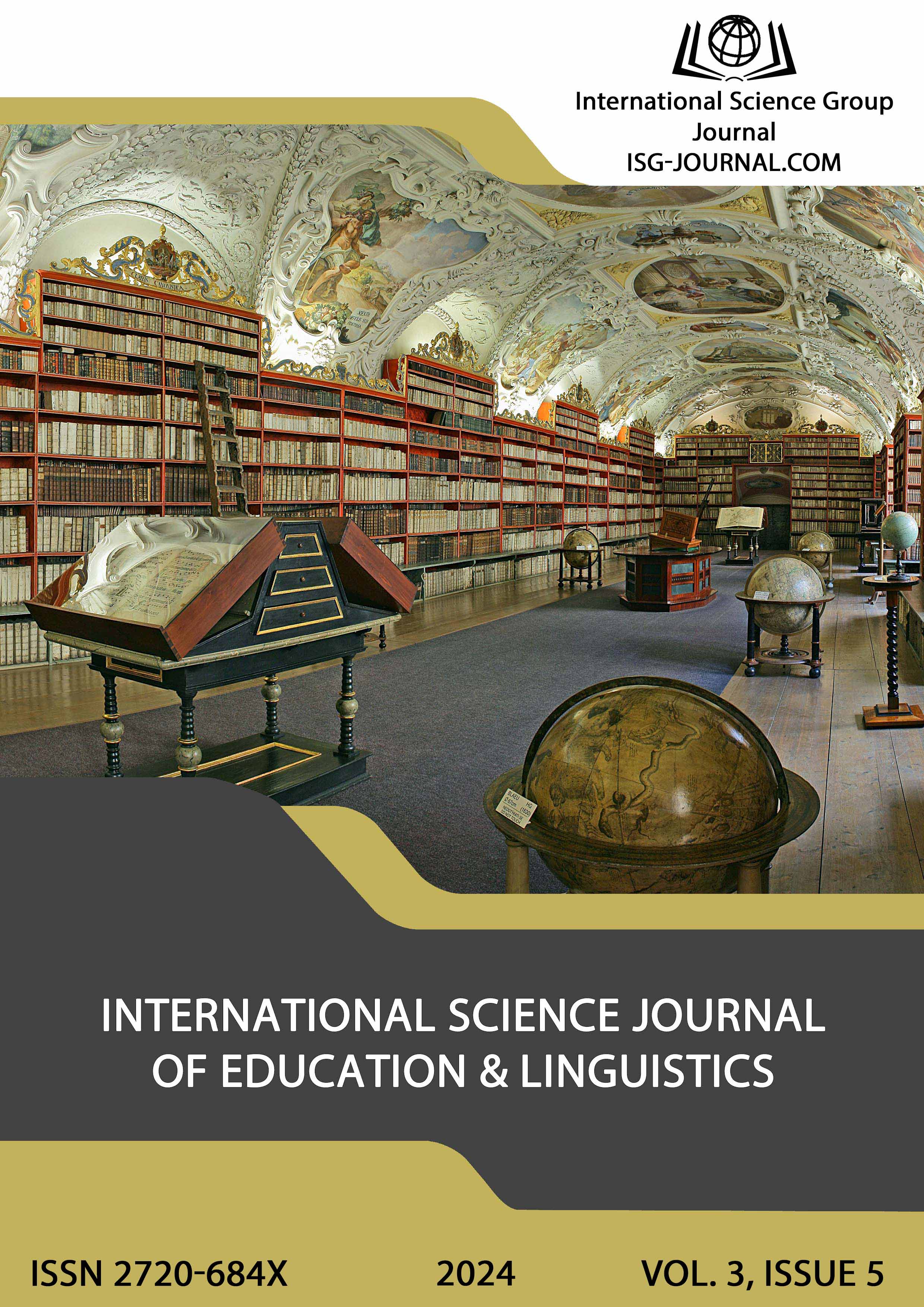Language and power: linguistic imperialism
DOI:
https://doi.org/10.46299/j.isjel.20240305.06Keywords:
linguistic imperialism, language dominance, cultural marginalization, global communication, identity formation, post-colonial societies, language policies, linguistic diversity, multilingualismAbstract
Linguistic imperialism refers to the dominance of one language over others, often resulting in the marginalization of local languages and cultures. This phenomenon has significant implications for power dynamics in global communication, education, and identity formation. The paper explores the historical context of linguistic imperialism, examining how colonialism and globalization have contributed to the prevalence of languages such as English in international discourse. The object of research is the impact of linguistic hegemony on non-dominant languages and their speakers. The subject of this study focuses on the social, political, and cultural ramifications of linguistic imperialism, particularly in post-colonial societies. Through a comprehensive literature analysis, the article identifies key theories and frameworks that explain the mechanisms of language dominance. The research employs qualitative methods, including discourse analysis and case studies, to illustrate the lived experiences of individuals affected by linguistic oppression. The findings reveal a correlation between language use and power relations, underscoring the need for inclusive language policies that promote linguistic diversity. The prospects for further research development include investigating strategies for revitalizing endangered languages and fostering multilingualism in educational contexts. In conclusion, addressing linguistic imperialism is crucial in promoting social justice and preserving cultural heritage in an increasingly interconnected world.References
Bourdieu, P. (1991). Language and symbolic power. Harvard University Press.
Bhabha, H. K. (1994). The location of culture. Routledge.
Castells, M. (1996). The rise of the network society. Blackwell Publishers.
Crystal, D. (2003). English as a global language. Cambridge University Press.
Hornberger, N. H. (2006). Frameworks and models in language policy and planning. In T. Ricento (Ed.), An introduction to language policy: Theory and method (pp. 24-41). Blackwell Publishing.
Phillipson, R. (1992). Linguistic imperialism. Oxford University Press.
Skutnabb-Kangas, T. (2000). Linguistic diversity and biodiversity: The need for a new approach. International Journal of the Sociology of Language, 142(1), 13-28. https://doi.org/10.1515/ijsl.2000.142.13
Spolsky, B. (2004). Language policy. Cambridge University Press.
Tollefson, J. W. (2002). Language policies in education: Critical issues. Lawrence Erlbaum Associates.
Wright, S. (2004). Language policy and language planning: From nationalism to globalisation. Palgrave Macmillan.
Canagarajah, A. S. (2006). The ecology of language shift and the role of English in South Asia. Language Policy, 5(2), 117-140. https://doi.org/10.1007/s10993-006-9021-2
Graddol, D. (2006). English next: Why global English may mean the end of ‘English as a foreign language’. British Council.
Meyerhoff, M. (2006). Introducing sociolinguistics. Routledge.
Heller, M. (2007). Bilingualism: A social approach. Palgrave Macmillan.
McKay, S. L., & Hornberger, N. H. (Eds.). (1996). Sociolinguistics and language teaching. Cambridge University Press.
Holliday, A. (2005). The struggle to teach English as an international language. Oxford University Press.
Tannen, D. (2001). Languaging: The power and the politics of language. International Journal of Applied Linguistics, 11(1), 26-39. https://doi.org/10.1111/1473-4192.00016
Kachru, B. B., Kachru, Y., & Nelson, C. L. (Eds.). (2009). The handbook of world Englishes. Wiley-Blackwell.
Downloads
Published
How to Cite
Issue
Section
License
Copyright (c) 2024 Nataliia Lukianenko

This work is licensed under a Creative Commons Attribution 4.0 International License.





